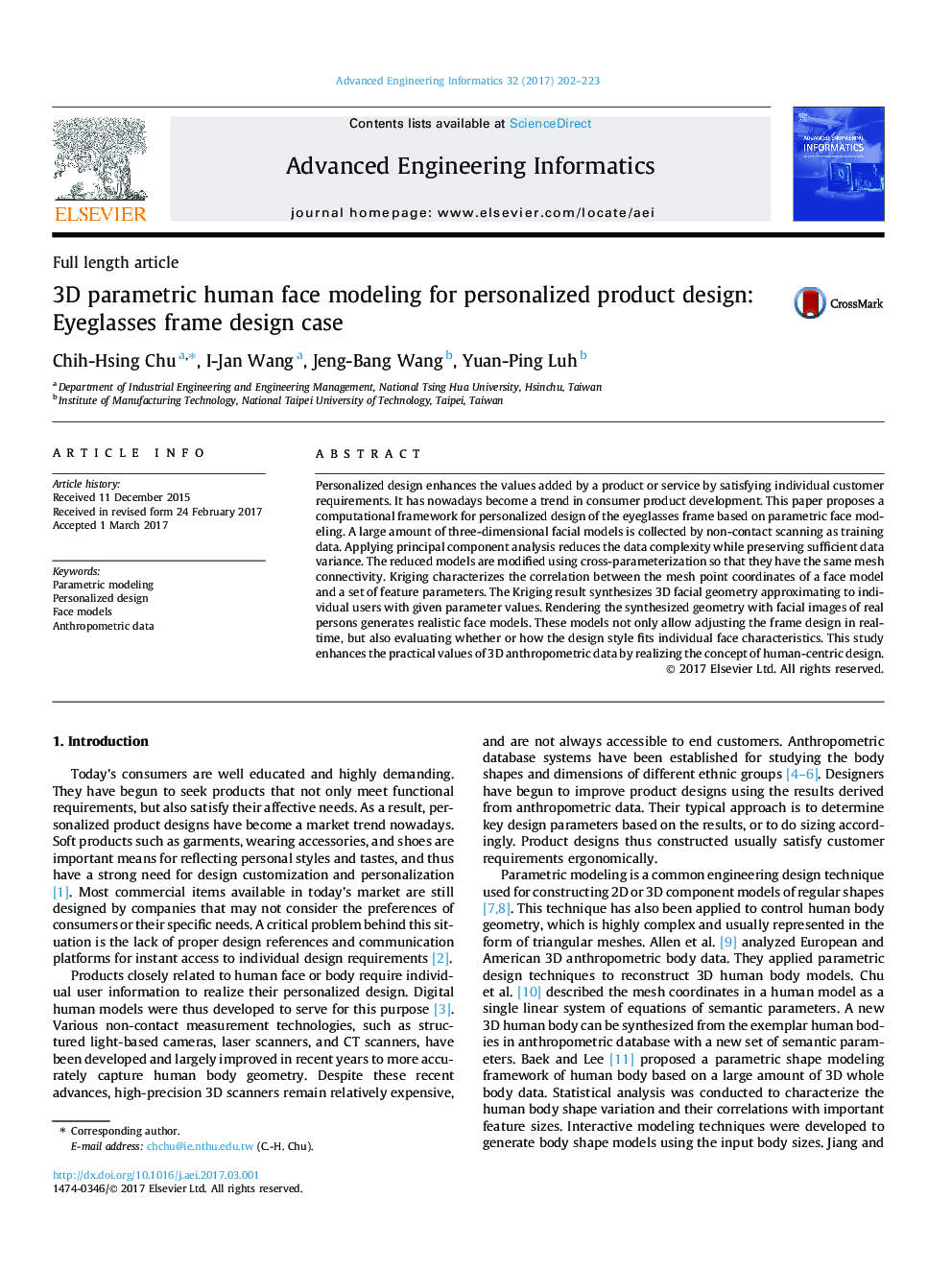| Article ID | Journal | Published Year | Pages | File Type |
|---|---|---|---|---|
| 4911045 | Advanced Engineering Informatics | 2017 | 22 Pages |
Abstract
Personalized design enhances the values added by a product or service by satisfying individual customer requirements. It has nowadays become a trend in consumer product development. This paper proposes a computational framework for personalized design of the eyeglasses frame based on parametric face modeling. A large amount of three-dimensional facial models is collected by non-contact scanning as training data. Applying principal component analysis reduces the data complexity while preserving sufficient data variance. The reduced models are modified using cross-parameterization so that they have the same mesh connectivity. Kriging characterizes the correlation between the mesh point coordinates of a face model and a set of feature parameters. The Kriging result synthesizes 3D facial geometry approximating to individual users with given parameter values. Rendering the synthesized geometry with facial images of real persons generates realistic face models. These models not only allow adjusting the frame design in real-time, but also evaluating whether or how the design style fits individual face characteristics. This study enhances the practical values of 3D anthropometric data by realizing the concept of human-centric design.
Related Topics
Physical Sciences and Engineering
Computer Science
Artificial Intelligence
Authors
Chih-Hsing Chu, I-Jan Wang, Jeng-Bang Wang, Yuan-Ping Luh,
